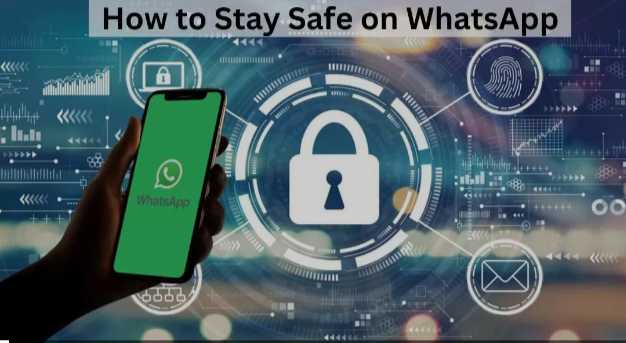Many people regularly use WhatsApp for personal and corporate work as it offers audio and video calling as well as messaging. As a result, various personal and important information is stored in the app. Therefore, it is necessary to keep your WhatsApp account safe from cyber-attacks. Let’s take a look at some tricks to keep your WhatsApp account safe.
Refrain from Sharing Codes of WhatsApp Account Safe:
Avoid sharing your WhatsApp verification code and one-time password (OTP) with others. By using the information from verification codes and OTPs, cyber criminals can take over someone else’s WhatsApp account.
How to Use Two Levels of Security for WhatsApp Account Safe?

To keep your WhatsApp account secure, enable two-step verification. To activate this feature, click on the three-dot menu on the top right side of WhatsApp and select the ‘Account’ option in ‘Settings.’ Then, click on ‘Two-step verification,’ select ‘Turn on,’ and enter a six-digit password and an email address.
Do Not Click on Harmful Links:
Cybercriminals often send malicious links through messages, emails, or SMS to various users to deceive WhatsApp users. Therefore, refrain from clicking on links sent by strangers on WhatsApp. Clicking on unverified links can introduce malware into your device and steal important information.
Precautions When Using Public Wi-Fi:
Security on public Wi-Fi networks is not strong. As a result, cybercriminals can steal information from public Wi-Fi networks. Therefore, avoid using WhatsApp over public Wi-Fi. If necessary, turn on a VPN when using WhatsApp on public Wi-Fi networks.
Use the Latest Version of WhatsApp:
Various errors cannot be resolved without using an updated app. Always use the latest version of WhatsApp. The updated version fixes security flaws in previous versions, helping you stay safe from cyber-attacks.
Use Screen Lock on WhatsApp Web Version:
Many people use the WhatsApp web version on computers as well as smartphones. Computers usually run WhatsApp without a password. As a result, all the information contained in WhatsApp may be exposed to multiple users of the same computer. Therefore, you should use the screen lock feature while using WhatsApp on a computer.

To Keep Your WhatsApp Account Safe, Follow These Steps:
- Enable Two-Step Verification: Turn on two-step verification in WhatsApp settings. This adds an extra layer of security by requiring a PIN whenever you register your phone number with WhatsApp again.
- Use Strong Passwords: If you back up your chats to Google Drive or iCloud, ensure that your backup account is protected with a strong password and, if possible, two-factor authentication.
- Keep Your App Updated: Regularly update WhatsApp to the latest version. Updates often include security patches that protect against vulnerabilities.
- Be Cautious with Links and Attachments: Don’t click on suspicious links or download attachments from unknown contacts. These could be phishing attempts or contain malware.
- Check Encryption: Ensure that your chats are end-to-end encrypted by verifying the security code with your contacts. This ensures that only you and the person you’re communicating with can read what is sent.
- Manage Privacy Settings: Customize your privacy settings to control who can see your last seen, profile photo, status, and other information. Consider setting them to “My Contacts” or “Nobody” to limit exposure.
- Beware of Scams: Be skeptical of messages that request personal information, offer prizes, or seem too good to be true. Scammers often use these tactics to steal your information of WhatsApp Account Safe.
- Log Out of Web Sessions: If you’ve used WhatsApp Web, make sure to log out of all sessions when you’re done, especially on shared or public computers.
WhatsApp Account Safe By following these steps, you can significantly enhance the security of your WhatsApp account and protect your personal information from unauthorized access.

